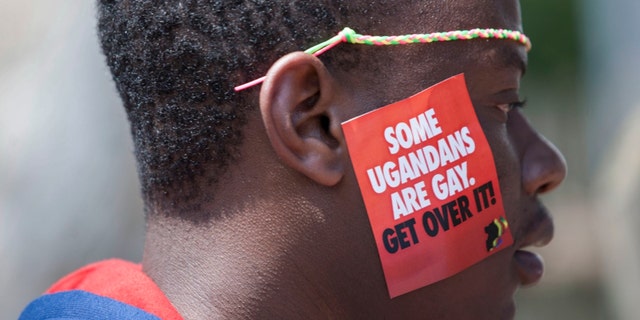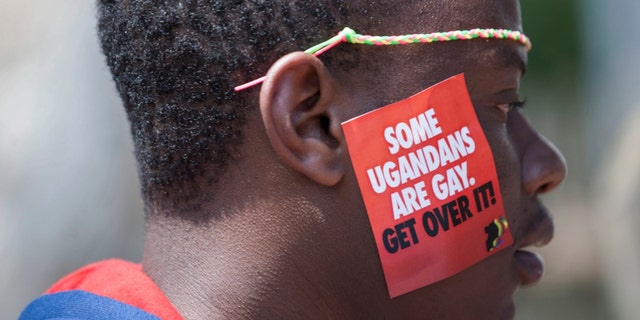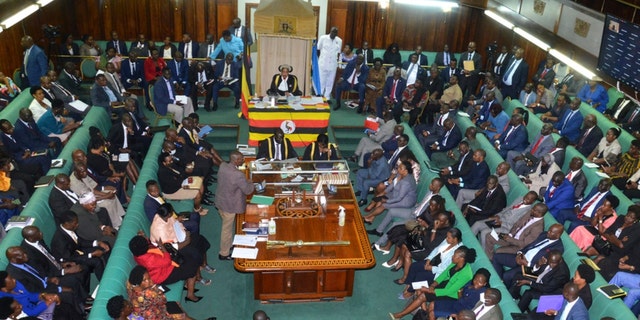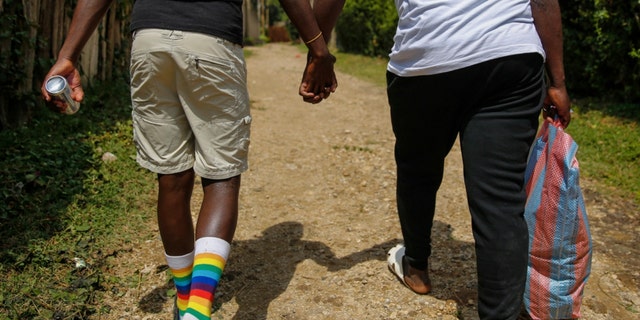
The White House said Wednesday that the U.S. has “grave concerns” regarding the passage of the Anti-Homosexuality Act (AHA) in Uganda, and said U.S. economic support for the country could be at risk over the bill.
White House press secretary Karine Jean-Pierre said the legislation would hamper tourism and economic investment.
“If the AHA is signed into law and enacted, it would impinge upon universal human rights, jeopardize progress in the fight against HIV/AIDS, deter tourism and [investment] in Uganda, and damage Uganda’s international reputation,” she told reporters at the daily press briefing.
“No one should be attacked, imprisoned, or killed simply because of who they are, or who they love,” Jean-Pierre added.
UNITED NATIONS RIGHTS CHIEF URGES UGANDA’S PRESIDENT TO BLOCK ANTI-LGBTQ BILL
National Security Council spokesman John Kirby warned that if the law were enacted, Washington would “have to take a look” at imposing economic penalties on Uganda.

A Ugandan man is seen during the third Annual Lesbian, Gay, Bisexual and Transgender Pride celebrations in Entebbe, Uganda on Aug. 9, 2014. (AP Photo/Rebecca Vassie)
“We’re — we’re certainly watching this real closely. And we would have to take a look at whether or not there might be repercussions that we would have to take, perhaps in an economic way, should this law actually get passed — enacted,” he said.
Kirby noted that this would be “really unfortunate” since most U.S. aid is in the form of health assistance, especially anti-AIDS assistance.
“And you can see a world in which, you know, a law like this, should it be enacted, would not only, as Karine rightly said, just be devastating to a whole community of people inside of Uganda, but if it were to have any kind of an effect on our economic assistance, that would only make that worse,” he said.
Additionally, the United Nations rights chief also urged Ugandan President Yoweri Museveni to block the bill.
“The passing of this discriminatory bill — probably among the worst of its kind in the world — is a deeply troubling development,” Volker Turk, the U.N. high commissioner for human rights, said in a statement.

The Ugandan Parliament votes on the Anti-Homosexuality Act, Tuesday, March 21, 2023. (AP Photo/Ronald Kabuubi)
UGANDA OVERWHELMINGLY PASSES BILL THAT ENACTS 10-YEAR PRISON PENALTY FOR SAME-SEX RELATIONS
The bill, which was passed late Tuesday, now goes to Museveni to either veto or sign it into law. The president suggested in a recent speech that he supports the bill.
The measure creates the offense of “aggravated homosexuality,” which now carries the death penalty.
According to the bill, a suspect convicted of “attempted aggravated homosexuality” can be jailed for 14 years, and the offense of “attempted homosexuality” is punishable by up to 10 years.

Gay Ugandan refugees who fled from their country to neighboring Kenya, return after shopping for food in Nairobi, Kenya on June 11, 2020. (AP Photo/Brian Inganga, File)
The offense of “homosexuality” is punishable by life imprisonment under a colonial-era law.
The bill was introduced last month by an opposition lawmaker who said his goal was to punish “promotion, recruitment and funding” related to LGBTQIA+ activities in this East African country, where homosexual individuals are widely disparaged.
Anti-gay sentiment in Uganda has grown in recent weeks amid alleged reports of sodomy in boarding schools.
Homosexuality is criminalized in more than 30 of Africa’s 54 countries.
The Associated Press contributed to this report.








